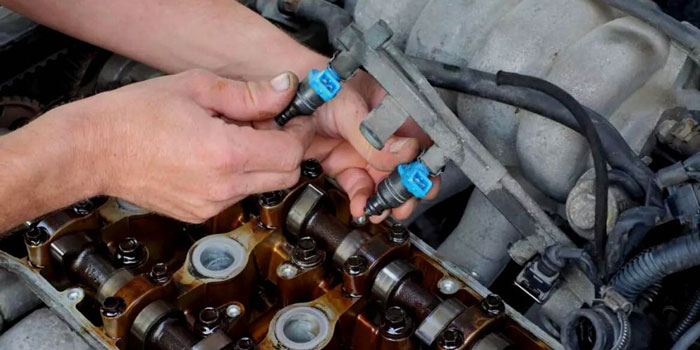Ever walked into your garage and thought, “Hmm, did I accidentally spill gasoline in here?” Well, if your engine oil is giving off a strong scent of gas station vibes, you might be facing a funky situation under the hood. As a car enthusiast, I’ve encountered the perplexing phenomenon of oil smelling like gas more times than I’d like to admit. But fear not, fellow drivers, for I’m here to shed some light on this smelly mystery.
In this text, I’ll take you on a delightful journey through the five most common reasons why your oil might be channeling its inner petrol spirit. From worn-out piston rings to a misbehaving fuel injector, we’ll explore the quirky culprits that can turn your oil change routine into a fragrant adventure. So buckle up, folks, as we jump into the aromatic world of automotive odors and uncover the secrets behind that gas-like essence wafting from your engine.
Common Causes for Oil Smelling Like Gas
When it comes to that strange phenomenon of your oil smelling like gas, I know it can turn your routine oil change into a fragrant adventure in the world of automotive odors. So why does this happen? Let’s jump into the common culprits that might be giving your oil that extra “oomph” of gasoline scent.

Over-Rich Fuel Mixture
Ah, the classic over-rich fuel mixture! It’s like your car just can’t help but overdress for the occasion. Picture this: your engine gets a bit too much fuel, and voilà, you’ve got a pungent blend of gas and oil. It’s like mixing up cologne and perfume – it may be a lot for the senses!
Frequent Short-Distance Drives
I get it, you want to take your car out for a quick spin around the block. But here’s the thing: those short trips may be making your oil smell like a gas station. The engine doesn’t get hot enough to burn off all the gasoline, leaving you with an aromatic surprise during your oil check.
Worn Piston Rings
Oh, those worn piston rings! It’s like having leaky faucets in your engine. They let gas sneak into the oil party, creating a scent that’s not quite what you want. Imagine trying to contain a waterfall in a teacup – it just doesn’t work well.
Faulty Fuel Injectors
Think of faulty fuel injectors as the pranksters in the engine world. They decide to spray extra fuel into places it shouldn’t be, like your oil supply. Suddenly, your car thinks it’s a walking gas station, and you’re left wondering why your oil smells like a fuel pump.
Problems with Engine Components
I know, who invited these engine components to the oil and gas party? Sometimes, issues like a malfunctioning carburetor or a problematic PCV valve can lead to a collision of oil and gas aromas. It’s like the engine’s way of saying, “Let’s spice things up a bit!”
How to Diagnose Gas in Your Engine Oil
Ah, the alluring scent of gasoline in your engine oil—a fragrant reminder that your car is not just a means of transportation but a symphony of scents. Let’s decipher this aromatic enigma with a dash of humor and a sprinkle of automotive wisdom.
Performing a Visual Inspection
When embarking on the quest to uncover the mystery of gas-infused engine oil, a visual inspection is your first pit stop. Grab your trusty flashlight and follow me on this enlightening journey through the depths of your engine.
- Oil Color: Is your engine oil darker than a moonless night? A shade closer to amber than ebony could signal gasoline infiltration.
- Consistency: Dip your fingers into the oil; is it thinner than watered-down soup? Gasoline dilution might be playing tricks on your engine’s viscous nature.
Checking for Symptoms of Fuel Contamination
Investigate deeper into the essence of gasoline mingling with your engine oil by understanding the telltale signs it leaves behind. Prepare to decode the secret language of your engine:
- Unusual Odors: Besides the sweet perfume of gasoline, are there any other suspicious scents wafting from your engine bay? A curious combination of odors could point to fuel contamination.
- Performance Issues: Has your vehicle suddenly decided to perform a rebellious dance on the road, with erratic idling and stuttering acceleration? This mischievous behavior might just be the handiwork of gasoline seeping into places it shouldn’t be.
Solutions to Fix Gas-Oil Mixture Issues
Now let’s roll up our sleeves and jump into fixing those pesky gas-oil mixture problems! Here are some solutions that will have your engine running smoothly in no time.
Adjusting the Fuel Injection System
It’s time to play mechanic and tackle that fuel injection system. Here’s what you can do:
- Check for clogs or blockages: Sometimes, all it takes is a good cleanup to get things back on track.
- Adjust the fuel-to-air ratio: Balance is key in life and in your engine, so make sure everything’s running harmoniously.
- Consult a professional if needed: When in doubt, don’t be afraid to seek expert advice. They’ll know how to fine-tune your system like a pro.
Replacing Damaged Engine Parts
Out with the old, in with the new! Here’s how to handle damaged engine parts:
- Identify the culprit: Pinpoint which part is causing the issue, whether it’s those worn-out piston rings or faulty injectors.
- Get the replacements: Time to shop for some shiny new parts to give your engine the makeover it deserves.
- Install with care: Treat your engine like royalty and ensure each replacement part is fitted snugly and securely.
Regular Maintenance and Checks
Prevention is better than cure, they say. Keep your engine in top shape with these tips:
- Follow the maintenance schedule: Show your engine some love by sticking to its maintenance routine.
- Conduct regular inspections: A little peek under the hood now and then can go a long way in preventing future mishaps.
- Listen to your engine: Pay attention to any unusual sounds or smells; your engine might be dropping hints it needs some TLC.
Time to channel your inner mechanic and get those oily odors out of your life! Before you know it, your engine will be purring like a content cat.
Preventing Future Issues
It’s time to tighten those bolts and swap some parts to stop that gas smell from invading your oil.
Tips for Engine Care
- Regular Maintenance: Don’t treat your car like that old pair of sneakers you never clean. Give it some love regularly.
- Check Your Fuel Injector: It’s like checking if your pet goldfish is still swimming. Make sure it’s working right.
- Inspect Piston Rings: They’re not bling for your engine; they’re essential. Keep an eye on them.
- Monthly: Check oil levels and color. Make sure it’s not turning into a rainbow of trouble.
- Biannually: Get a professional to inspect your fuel system. It’s like taking your car to the doctor for a check-up.
- Annually: Replace old parts and give your engine a good clean. It deserves a spa day too.
Keep your engine happy, and it won’t gas you out.
Conclusion
Well, there you have it, folks! Your oil smelling like gas is no joke, but fear not, for I’ve laid out the reasons and solutions like a pro. Remember, a stinky oil situation can be a real drag on your engine’s performance, so don’t ignore the signs! Stay on top of those maintenance checks, give your fuel system some love, and keep those piston rings in check. Your engine will thank you with smooth purrs and fewer foul odors. So, go forth, my fellow engine enthusiasts, and conquer that gas smell like the heroes you are!
Frequently Asked Questions
Why does engine oil smell like gasoline?
En engine oil can smell like gasoline due to reasons such as over-rich fuel mixture, worn piston rings, and faulty fuel injectors. It is essential to diagnose the issue through visual inspections and take necessary actions to prevent further damage to the engine.
How to diagnose gas in engine oil?
You can visually inspect the oil color and consistency to detect the presence of gas in the engine oil. If the oil appears thinner than usual or has a strong gasoline odor, it indicates an issue with the fuel mixture or engine components.
What are the solutions for fixing gas-oil mixture problems?
Fixing gas-oil mixture problems involves adjusting the fuel injection system, replacing damaged engine parts like piston rings, and addressing any issues with the fuel injectors. Regular maintenance and checks are key to preventing such problems.
Why is it important to maintain regular checks?
Regular maintenance checks help in preventing issues with gas contamination in engine oil and ensure optimal engine performance. Checking fuel injectors, inspecting piston rings, and establishing maintenance schedules for oil checks and part replacements are crucial for engine care.
How to prevent gas contamination in engine oil?
Proactive engine maintenance, including regular oil checks, fuel system inspections, and part replacements, helps prevent gas contamination in engine oil. It is important to address any potential issues promptly to keep the engine running smoothly and efficiently.

